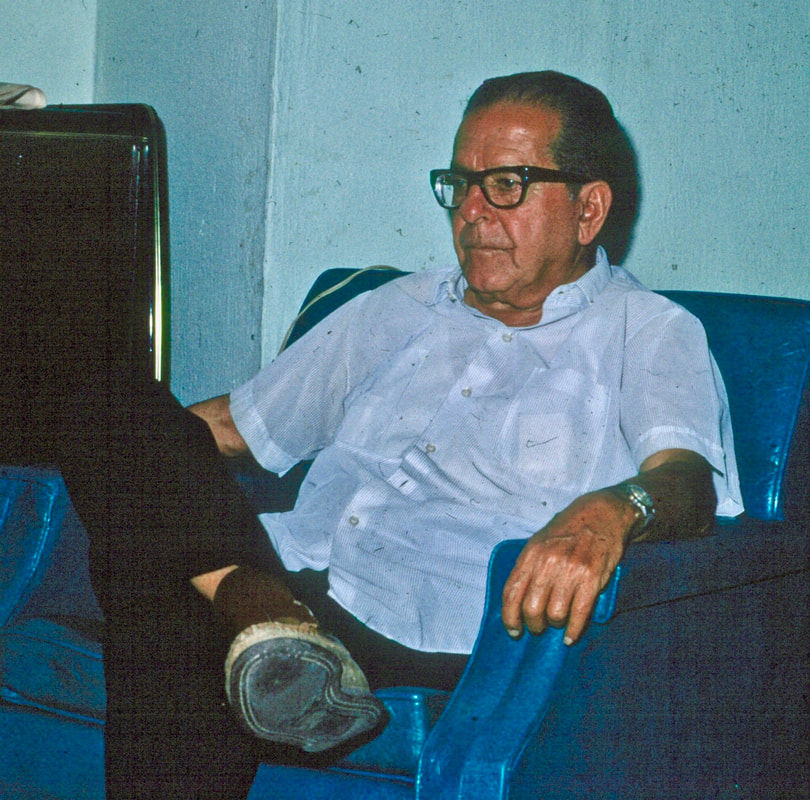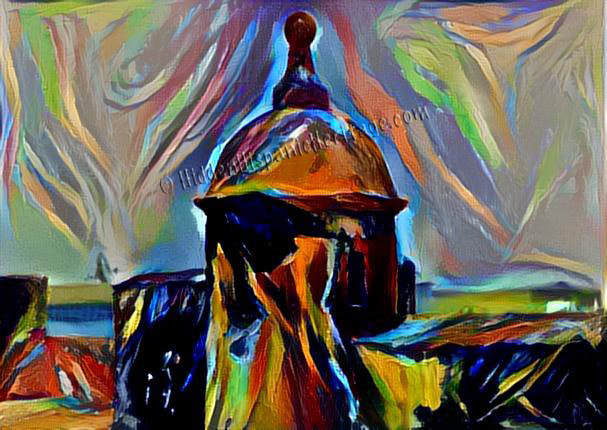Old Man's Dream Lives On
|
May 28, 1983 --I think of him often now that Ronald Reagan is in the White House. He would have loved President Reagan.
Last week, when Reagan spoke to Cuban exiles in Miami and said, "Cuba Si, Castro No," Miguel Martinez would have started packing his bags to move back to Havana. Like many older Cubans who see Reagan's actions in Central America as the beginning of the end of Fidel Castro, Martinez would have stood on a Miami sidewalk waving a Cuban flag and imagining himself on the plane back to Cuba. But he will never make that trip. He didn't live long enough to see his Cuba free of communism. He died in Miami four years ago — a week after his 84th birthday — but I think of him often now that Reagan is in the White House. He had spent the last years of his life waiting for a President like Reagan who recognizes the threat of communism in Latin America. He was born in 1895, the year that Cubans — with the help of American troops — won their war of independence from Spain. And he was 7 years old when Cuba officially became an independent nation on May 20 in 1902. But he didn't live to see Reagan come to Miami this May 20. "Eighty-five years ago we joined together and fought side by side, shedding our blood to free Cuba from the yoke of colonialism," Reagan said in Miami. "Sadly, we must acknowledge that Cuba is no longer independent. But let me assure you . . . we will not permit the Soviets and their henchmen in Havana to deprive others of their freedom — and someday, Cuba itself will be free." Martinez spent 16 years in exile waiting for an American President to say those words. Older Cubans live on memories, longing to return to their homeland and expecting a miracle to sweep Castro and communism out of Cuba. This is why to the Cuban exiles Reagan's trip to Miami's "Little Havana" and his recognition of Cubans' "consuming passion for liberty" are victories over Fidel Castro. "Don't let anyone fool you, what's happening in Cuba is not a failure of the Cuban people, it's a failure of Fidel Castro, and of communism," the President said. Before he suffered a stroke that paralyzed his body and left him with the mentality of a six-month-old baby, Martinez spent more than 10 years sitting on his porch in Miami, listening to a radio and constantly reading newspapers — in English and Spanish — to look for some news that would lead him to believe that Cuba would soon be free. Like most older Cubans, Martinez thought he came to this country for a short stay — and he had no intention of dying here. He could not accept the fact that the U.S. would tolerate a Communist regime 90 miles from its coast. He kept expecting the CIA to assassinate Castro or the Marines to land in Cuba. It was always something new, but he was always going back to Cuba within a week or two. When Martinez' grandson, Miguelito, who was named after him, enrolled in a Miami elementary school in 1963, Martinez insisted that it was a waste of time because they would soon return to Cuba. And when his grandson went to college in 1970, Martinez advised him to wait to enroll at the University of Havana. Born into poverty in the small town of La Salud, in Cuba's Havana province, Martinez went on to become a millionaire after many years of tireless work in agriculture. As a boy, Martinez was lucky when he had a good pair of shoes. His father left home when Martinez was a young boy and his mother became a washwoman to support her five children. Working the fields from sunrise to nightfall, Martinez spent his youth saving his money until, at the age of 25, he bought his own farm. But in the 1950s, Martinez, a passionate lover of freedom, became vehemently opposed to the dictatorship that ruled his country. He made large donations to the rebels who were fighting in the mountains to overthrow the dictatorship of Fulgencio Batista. He was overjoyed on the morning of Jan. 1, 1959, blindly believing that the triumph of the Cuban Revolution would bring freedom to the Cuban people and prosperity to his business interests. But things didn't turn out that way. Cuba had gone from a right-wing dictatorship to a Communist dictatorship. Ownership of Martinez' real estate was taken over by the government and there was talk that soon Castro's agrarian reforms would take control of Martinez' farms. His opposition to the Communist inclinations of the Castro government made Martinez an enemy of the revolution. He was jailed three times, falsely accused of setting fire to his own fields to sabotage Castro's ailing economy. During the Bay of Pigs invasion, he managed to escape the mass arrests of anti-Castro Cubans. He finally came to Miami aboard a "freedom flight" in March of 1963. He had been a millionaire, but he came here with the allowed three sets of clothing — and without a penny. Expecting Castro to disappear at any moment, he had refused to exchange his wealth — like other Cubans did — for dollars he could have smuggled into the U.S. Martinez wanted to live until he saw his Cuba free again. He wanted to die and be buried in the town where he was born. Instead, he rests in a Miami cemetery. But the ideals he taught his grandson are still alive. Miguelito never followed that advice about waiting to study in the University of Havana. He learned the values his grandfather taught him, but he went to school and learned the English language. Now he writes a column for this newspaper. Originally published in The Daily News |

